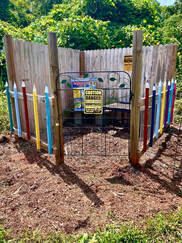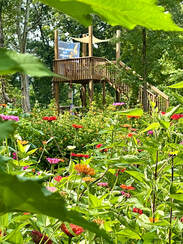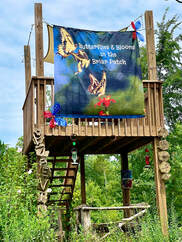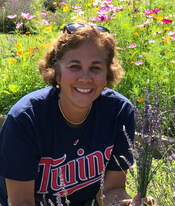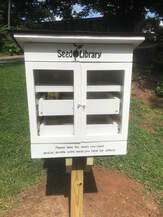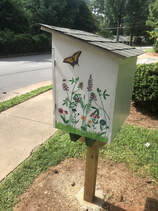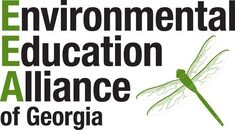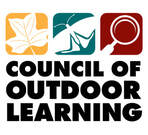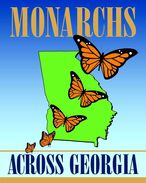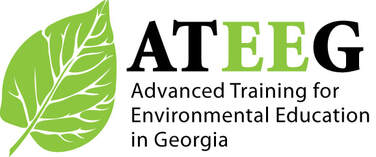Environmental Education Alliance of Georgia
- Our Story
- Our Team
- Our Events
-
Our Resources
- Wildlife Viewing
- Earth Month Activities
- Garden-based Learning
- EcoEngineering Challenges
- Community (Citizen) Science
- Phenomenon-Based Learning
- Problem-Based Learning
- Place-Based Learning
- Project-Based Learning
- Teaching about Climate Change
- Teaching about EJ
- Zero Waste Heroes
- SAGES Project
- Virtual EE Resources
- Environmental Clubs
- Evaluation and Assessment
-
Our Work
- Our News
- Our Impact
- JOIN or GIVE
- Member Portal
- Contact Us
- Outdoor Learning Store
- PassTick2023-4
- Annual Report
- New Page
- Past 2022 EEA Conference
- Past EEA Board 2021-22
- Past 2022 conferenceoverview
- Non-clickable Page
- New Page
- EEA Guest Blog
- Our Story
- Our Team
- Our Events
-
Our Resources
- Wildlife Viewing
- Earth Month Activities
- Garden-based Learning
- EcoEngineering Challenges
- Community (Citizen) Science
- Phenomenon-Based Learning
- Problem-Based Learning
- Place-Based Learning
- Project-Based Learning
- Teaching about Climate Change
- Teaching about EJ
- Zero Waste Heroes
- SAGES Project
- Virtual EE Resources
- Environmental Clubs
- Evaluation and Assessment
-
Our Work
- Our News
- Our Impact
- JOIN or GIVE
- Member Portal
- Contact Us
- Outdoor Learning Store
- PassTick2023-4
- Annual Report
- New Page
- Past 2022 EEA Conference
- Past EEA Board 2021-22
- Past 2022 conferenceoverview
- Non-clickable Page
- New Page
- EEA Guest Blog
Monarchs Across Georgia Habitat Award Recipients
2021 - Butterflies & Blooms in the Briar Patch, Eatonton
On a location owned by the city of Eatonton, Butterflies & Blooms in the Briar Patch is a volunteer-based project whose active members change from season to season. After the site of the original garden was sold, the mayor requested that, rather than ending the project, it be moved to another location. The new area consists of a quarter-mile track full of native larval host plants for more than 70 butterflies and skippers!
The habitat is open to the public, free of charge from dawn to dark, seven days a week, including holidays. A Facebook page describes the native larval host plants, nectar plants, and butterfly life cycles, in addition to inviting the public to group events, such as monarch tagging. Hundreds of milkweeds have been propagated from seeds collected on the site by local middle school students. A ventilated butterfly cage allows visitors to view the metamorphosis of all the supported species in the habitat.
Since its original MAG certification in 2013, many features have been added, including a pond, a boardwalk that crosses a natural boggy area, and several nature viewing stations. The new area includes about five acres, and hundreds of plants (perennials as well as annuals) have been added. An outdoor classroom built by the Boy Scouts for their Eagle Scout designation is available to be used by any group.
Butterflies & Blooms in the Briar Patch hosts garden tours, students, and nature photographers. In 2021, more than 2,500 non-scheduled visitors dropped in to view this incredible habitat.
On a location owned by the city of Eatonton, Butterflies & Blooms in the Briar Patch is a volunteer-based project whose active members change from season to season. After the site of the original garden was sold, the mayor requested that, rather than ending the project, it be moved to another location. The new area consists of a quarter-mile track full of native larval host plants for more than 70 butterflies and skippers!
The habitat is open to the public, free of charge from dawn to dark, seven days a week, including holidays. A Facebook page describes the native larval host plants, nectar plants, and butterfly life cycles, in addition to inviting the public to group events, such as monarch tagging. Hundreds of milkweeds have been propagated from seeds collected on the site by local middle school students. A ventilated butterfly cage allows visitors to view the metamorphosis of all the supported species in the habitat.
Since its original MAG certification in 2013, many features have been added, including a pond, a boardwalk that crosses a natural boggy area, and several nature viewing stations. The new area includes about five acres, and hundreds of plants (perennials as well as annuals) have been added. An outdoor classroom built by the Boy Scouts for their Eagle Scout designation is available to be used by any group.
Butterflies & Blooms in the Briar Patch hosts garden tours, students, and nature photographers. In 2021, more than 2,500 non-scheduled visitors dropped in to view this incredible habitat.
|
|
2020 - Sagamore Hills Elementary School, Atlanta
Sagamore Hills Elementary School is a DeKalb County school garden accessible to the public. Students use it daily during the school year for habitat study, butterfly life cycles, monarch counts, bird counts, and bird habitat study. Their original certification with Monarchs Across Georgia was for three four-by-six-foot raised beds. Those are maintained and replanted as needed. Led by Stephanie Spencer, K-5 STEM teacher, an additional hillside garden was added in the fall of 2019. Originally a weedy neglected area on campus, the hillside, measuring 130 feet long by 15 feet high, was turned into a pollinator haven. With the help of over sixty parents, staff, and students on three full Saturday workdays, over one hundred native plants were planted across the entire hillside.
The hillside garden now includes dozens of flowering plants for the monarchs and other pollinators to use as nectar sources. It includes three species of native milkweed, is pesticide-free, and has signage to prevent spraying by district personnel. Students raise monarchs in the classroom, test them for OE through Project Monarch Health, sending the samples to the University of Georgia. Students also tag the monarchs for the fall migration through Monarch Watch at the University of Kansas.
One of the most unique features on campus as part of this Pollinator Habitat program is a seed library to share native plant seeds with families and the neighborhood. About 200 packages of Asclepias tuberosa (Butterflyweed) seeds were shared in the fall of 2020. All seed packages have a QR code that links to planting instructions. Students collect and package seeds during garden club and in STEM class.
Sagamore Hills Elementary School is a DeKalb County school garden accessible to the public. Students use it daily during the school year for habitat study, butterfly life cycles, monarch counts, bird counts, and bird habitat study. Their original certification with Monarchs Across Georgia was for three four-by-six-foot raised beds. Those are maintained and replanted as needed. Led by Stephanie Spencer, K-5 STEM teacher, an additional hillside garden was added in the fall of 2019. Originally a weedy neglected area on campus, the hillside, measuring 130 feet long by 15 feet high, was turned into a pollinator haven. With the help of over sixty parents, staff, and students on three full Saturday workdays, over one hundred native plants were planted across the entire hillside.
The hillside garden now includes dozens of flowering plants for the monarchs and other pollinators to use as nectar sources. It includes three species of native milkweed, is pesticide-free, and has signage to prevent spraying by district personnel. Students raise monarchs in the classroom, test them for OE through Project Monarch Health, sending the samples to the University of Georgia. Students also tag the monarchs for the fall migration through Monarch Watch at the University of Kansas.
One of the most unique features on campus as part of this Pollinator Habitat program is a seed library to share native plant seeds with families and the neighborhood. About 200 packages of Asclepias tuberosa (Butterflyweed) seeds were shared in the fall of 2020. All seed packages have a QR code that links to planting instructions. Students collect and package seeds during garden club and in STEM class.
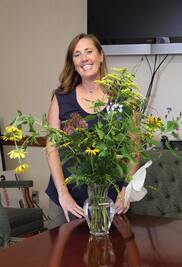
2018 - Southern Meadows, Talmo
Karin Hicks is the owner of Southern Meadows, a private garden where they garden with a purpose, creating harmony with people, plants, and animals. "Since our main gardening goal is to educate, the garden is open to garden clubs, photographers, environmental groups, and the community to tour so we can share what we do in our garden to support pollinators, birds, and other native wildlife, while growing food to eat and creating a sustainable landscape," says Karin. "I also document and share our garden journey and native plant goodness on my blog, Southern Meadows."
They have been busy since certification in 2013, re-purposing lawn areas; removing invasive plants; and planting native trees, shrubs and flowering perennials that support pollinators and birds. Southern Meadows is home to native bee nesting sites, meadow gardens with native grasses and perennials to support pollinators through all seasons, host plants for native moths, a rain garden, and a shade garden planted with native trees, shrubs and perennials.
Karin participates in various citizen science programs, has over 30 native milkweeds, and incorporates numerous sustainability practices. Southern Meadows continues to grow as more land is purchased and reclaimed to support wildlife.
Karin Hicks is the owner of Southern Meadows, a private garden where they garden with a purpose, creating harmony with people, plants, and animals. "Since our main gardening goal is to educate, the garden is open to garden clubs, photographers, environmental groups, and the community to tour so we can share what we do in our garden to support pollinators, birds, and other native wildlife, while growing food to eat and creating a sustainable landscape," says Karin. "I also document and share our garden journey and native plant goodness on my blog, Southern Meadows."
They have been busy since certification in 2013, re-purposing lawn areas; removing invasive plants; and planting native trees, shrubs and flowering perennials that support pollinators and birds. Southern Meadows is home to native bee nesting sites, meadow gardens with native grasses and perennials to support pollinators through all seasons, host plants for native moths, a rain garden, and a shade garden planted with native trees, shrubs and perennials.
Karin participates in various citizen science programs, has over 30 native milkweeds, and incorporates numerous sustainability practices. Southern Meadows continues to grow as more land is purchased and reclaimed to support wildlife.
|
Environmental Education Alliance, Inc.
P.O. Box 801066 | Acworth, GA 30101 EEA does not does not discriminate on the basis of race, color, national origin, sex, age, or disability in its program , activities, or employment. For more information on EEA's non-discrimination commitment click here . Grievance officer may be contacted at [email protected] |
Proudly powered by Weebly
|
